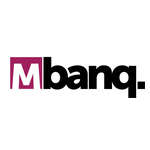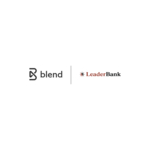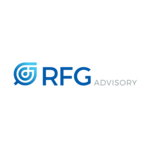2023: Top five core banking deals
As we wrap up 2023, FinTech Futures takes a look back at some of the year’s top core banking deals.
From global banking giants to new challenger banks, 2023 has been yet another year of financial institutions overhauling their legacy systems to provide customers with the 21st century services they require.
Here are five of the top core banking deals this year.
Mountain America Credit Union taps Corelation’s KeyStone core

Mountain America taps Corelation for KeyStone core
In March, Utah-based Mountain America Credit Union tapped Corelation to upgrade its legacy core system with the vendor’s KeyStone solution.
As the 12th largest credit union in the US, serving multiple states including Utah, Arizona, Idaho, Montana, New Mexico and Nevada, Mountain America has $15.8 billion in assets under management and more than 1 million members.
The deal began a long list of Corelation integrations this year, with other customers including Neches Federal Credit Union, IC Credit Union and PremierOne Credit Union as well as Hawaii Community Federal Credit Union and Pearl Hawaii Federal Credit Union.
Speaking on the deal with Mountain America that kickstarted it all, Rob Landis, the vendor’s president, said: “There is certainly a lot of work ahead of us to convert Mountain America to their new and improved core system, but we have the resources, processes, and the right team in place to make this project a success.”
BanCoppel partners Temenos for core banking
Mexican bank BanCoppel, part of Grupo Coppel, one of Mexico’s largest organisations, selected Temenos to deploy its core banking platform in July.
BanCoppel said it would use the platform to scale its operations and offer an integrated ecosystem of “easy and accessible” banking services.
“Historically, the mass market in Mexico has been underserved by conventional banking, with much less access to credit and financial services,” said Juan Manuel Fernández Islas, director of IT, digital transformation and operations, BanCoppel.
“This transformation project will increase efficiency by creating an open ecosystem with easy integration through APIs, which will allow us to create easy, simple and more accessible banking services.”
FDB Bank signs for Oracle’s Flexcube

FDB Bank signs core banking agreement with Oracle
Farmers Development Bank (FDB Bank), which was founded in Myanmar in 2020, adopted Oracle’s core banking system in July to pursue “accurate, fast and reliable” banking services for its customers.
Supporting its provision of savings accounts, fixed deposit accounts, debit cards and a mobile banking app, FDB Bank said at the time that it had “selected and is deploying one of the latest core banking technologies available on the market” to develop tools for digital onboarding, biometric registrations and automatic credit analytics.
It specifically cited Flexcube’s support of mobile banking, digital centres and agent networks as catalysts for its selection, furthering its attempt to serve customers “beyond banking hours” with the benefit of straight-through internal processing to reduce turnaround time for customers.
The deal was one of many stuck by the US-based vendor this year, with other customers including Ethiopia’s OMO Bank, Teachers Savings and Loan Society (TISA) in Papua New Guinea and Japan’s Mizuho Bank.
Monese drops Thought Machine’s core banking solution Vault in favour of homegrown XYB platform
In October, FinTech Futures exclusively revealed that the UK digital bank Monese was parting ways with Thought Machine three years after signing up for its Vault core banking platform.
The digital bank had previously been using the vendor’s core banking platform Vault, following its initial highly-publicised integration in 2020.
However, in the three years since, Monese made its own move into the digital core banking space, culminating in the launch of its “coreless” banking platform and subsidiary XYB in May this year.
Monese investor Investec was named as the inaugural customer to leverage the XYB banking platform. However, the digital bank soon realised that it could use its homegrown tech to power its own platform, effectively bringing to an end its longstanding partnership with Thought Machine.
Credit Union 1 migrates core to Jack Henry’s Symitar platform

CU1 went live on Jack Henry’s core
US banking tech provider Jack Henry sealed a deal with Credit Union 1 (CU1) this year which saw Alaska’s second-largest credit union transition to its core platform Symitar in December.
Already providing core technology to half the state’s credit union community, Jack Henry cited its open banking infrastructure as the decisive factor for CU1 to switch its core, and claimed that the credit union’s previous provider had “integration limitations that would impact their ability to grow”.
Mark Burgess, president and CEO of CU1, said it was “impressed” by the vendor’s R&D into its technology, adding that the partnership will help the credit union achieve its “long-term growth and scalability goals while giving us the stability we need from a trusted financial technology company”.











































